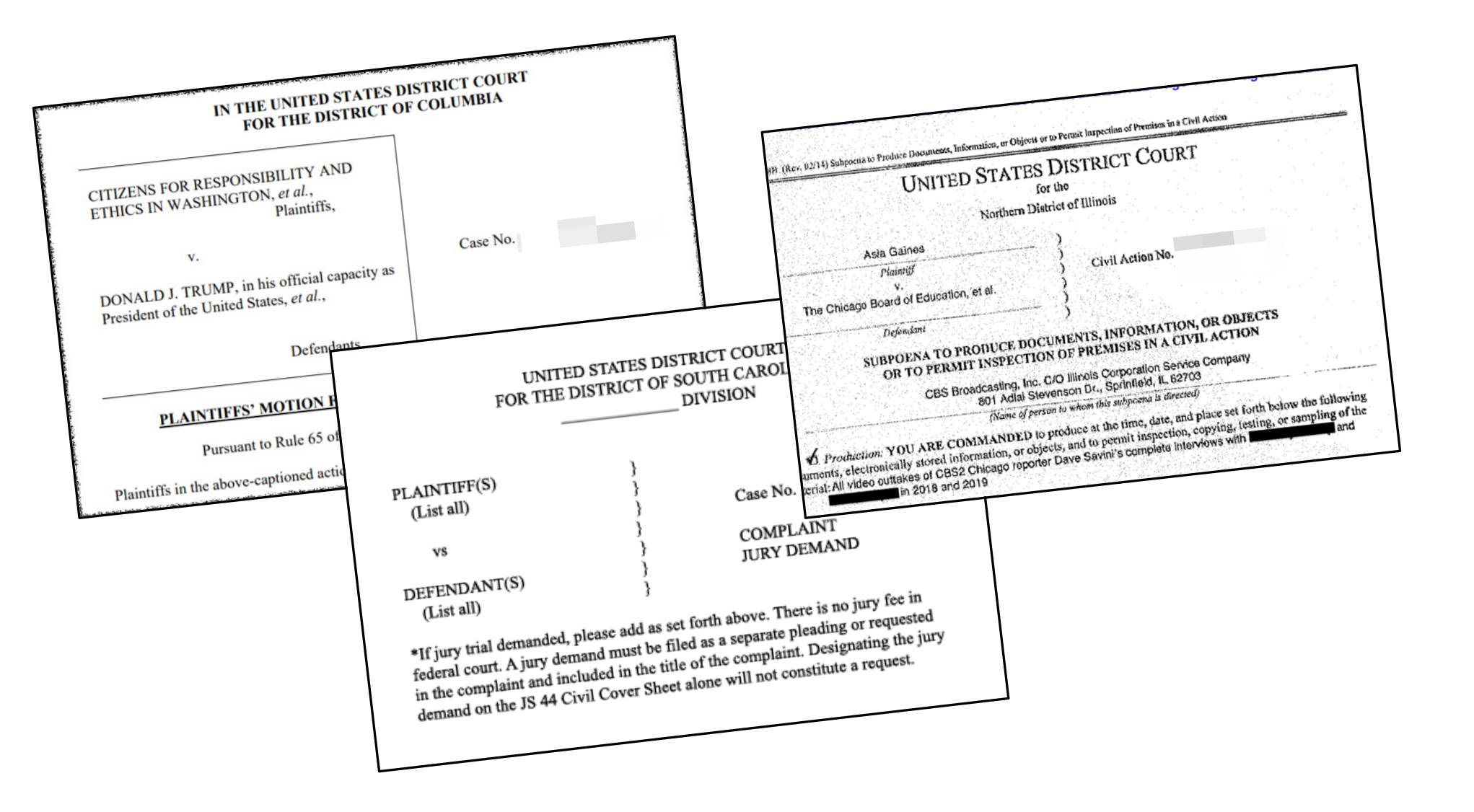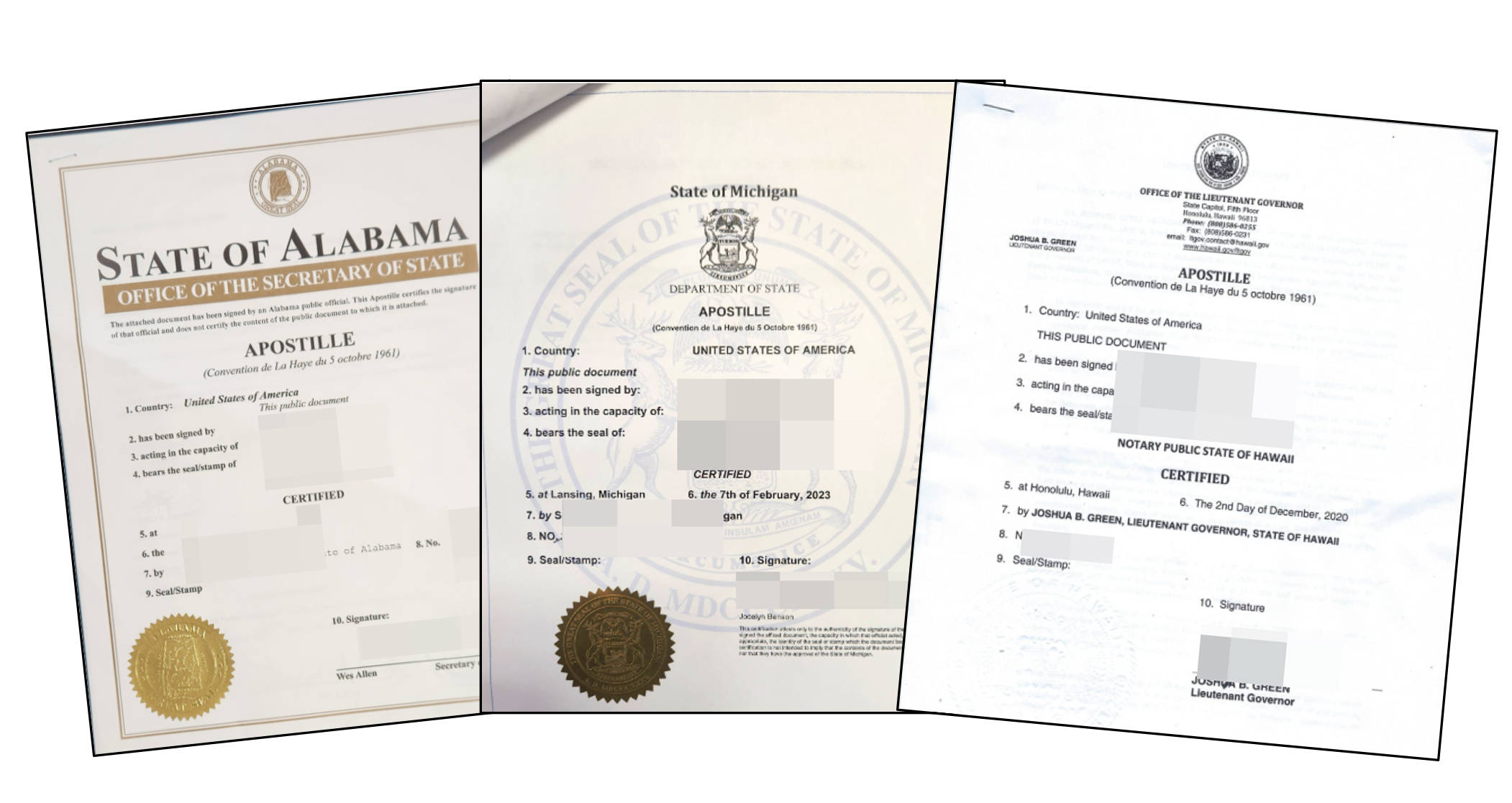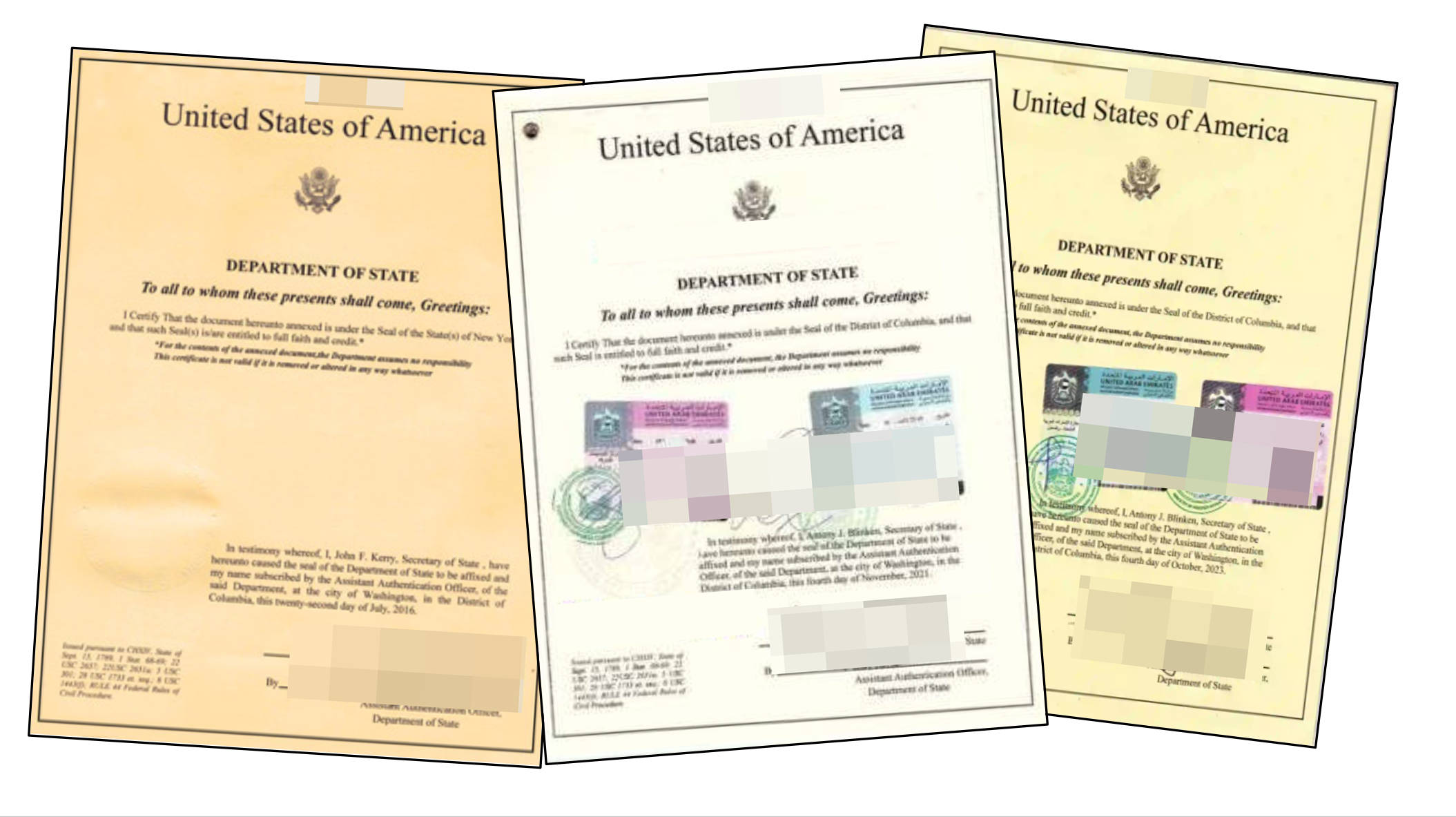Hague certification (Apostille) and consular authentication for U.S. federal court documents.

U.S. federal court documents are official records issued or certified by U.S. federal courts. These documents may pertain to various cases, including but not limited to civil lawsuits, criminal cases, and other judicial proceedings. Federal court documents include judgments, court orders, pleadings, and more. They are typically used in legal proceedings and to verify certain facts or decisions in domestic and international legal matters.
U.S. Federal Court Documents: A Case Example
Honestly, this might sound a bit complicated, but I’ll try to explain it clearly so you can get a clearer picture. U.S. federal court documents aren’t something that just any place can issue—they are typically issued by specific authorities within the U.S. federal court system.
For example, such documents might come from a federal court in Los Angeles, California, a federal court in Washington, D.C., or a federal court in New York City, New York. These courts issue official legal documents based on different cases and legal requirements.
Why are these documents needed? Generally, legal documents at the U.S. federal court level carry special legal authority. Whether it’s an arbitration ruling, a judgment, or other legal certification, these documents often serve as authoritative proof in legal matters, including international legal proceedings.
This isn’t just useful in the U.S.—it’s also highly relevant in China. With the increasing number of cross-border matters, you may need U.S. federal court documents for legal affairs in China, such as company registration, trademark and copyright certification, investment immigration paperwork, or the enforcement of U.S.-related litigation materials. In these cases, Chinese authorities need to be confident in the authenticity and legality of these U.S. documents.
In the past, China was not a member of the Hague Apostille Convention (Convention Abolishing the Requirement of Legalization for Foreign Public Documents). This meant that for a U.S. federal court document to be officially recognized in China, it had to go through a lengthy authentication and consular legalization process.
The good news is that China officially joined the convention on March 8, 2023, and started implementing it domestically on November 7, 2023. What does this mean? It means that U.S. federal court documents, once properly apostilled under the convention’s requirements, can now be used directly in China without needing additional consular authentication—saving time and effort.
At this point, clients have a specific need: they require U.S. federal court documents that are internationally recognized and officially accepted in China. However, since Chinese authorities don’t directly handle U.S. documents, what can be done?
To solve this, they turn to the Washington, D.C. notary office to help apply for and process the Hague Apostille certification for their U.S. federal court documents.
Why Washington, D.C.? Because it is home to many federal government agencies and has well-established professional authentication resources and channels. This makes it easier for clients to obtain certified U.S. federal court documents and get them apostilled.
Once this process is completed, the document receives an internationally recognized “identity stamp.” When used in China, local authorities generally will not require additional certification, making the process much more efficient.
The client’s problem is smoothly resolved. They no longer need to go through the old, complicated process of U.S. Department of State authentication followed by dual legalization at the Chinese embassy or consulate before their documents are reluctantly accepted in China.
Now, with a U.S. federal court document bearing a Hague Apostille, they can directly use it in China for legal, business, or personal matters.
This not only saves time and effort but also reduces communication and coordination costs, making international legal procedures much smoother. Clients can proceed with confidence, knowing their documents are officially recognized.
In short, with a U.S. federal court document plus Hague Apostille certification, and China’s accession to the Hague Convention, cross-border legal processes are now simpler, more convenient, and highly efficient.
We share case examples to help everyone better understand the relevant processes and application scenarios.
Please note: Any company names or individual names mentioned in this explanation are purely fictional. Any resemblance to real companies or individuals is purely coincidental.
Our examples are provided for reference only, serving as a framework to help you think through and evaluate similar situations. When applying this information to your own circumstances, please consider your specific needs carefully and seek professional advice or further verification when necessary.
What is U.S. Hague Apostille Certification?
U.S. Hague Apostille Certification, also known as Hague Convention Certification, is an international authentication method used to verify the legal authenticity of documents so they can be recognized in countries that are signatories to the Hague Convention Abolishing the Requirement of Legalization for Foreign Public Documents (Hague Apostille Convention).
As a member of the Hague Convention, the United States provides apostille certification through state secretaries’ offices (for state-issued documents) or federal agencies (for federal documents). This certification is commonly required for international legal matters, immigration, or other cross-border transactions, ensuring that courts and institutions in other Hague Convention countries accept the document as legally valid.
What is U.S. Consular Authentication?
U.S. Consular Authentication, also known as a Certificate of Authentication, is a process that verifies the authenticity of a document. It is similar to Hague Apostille certification but is specifically used for countries that are not members of the Hague Apostille Convention.
The authentication process typically involves multiple steps, including state-level and federal-level certifications, and is finalized by the U.S. Department of State or a U.S. embassy/consulate in the destination country. This ensures that the document is officially recognized by the receiving country and can be used for international business, legal matters, or government procedures.
Washington, D.C. Notary Office Agency Services
The Washington, D.C. Notary Office provides agency services for individuals and organizations that require international document authentication. Whether it’s Hague Apostille certification or consular authentication, the office offers professional assistance to simplify the process.
By using these services, clients can avoid the complexities of authentication procedures and ensure that their documents are quickly and effectively recognized internationally.
The services provided include:
- Document review to ensure compliance with authentication requirements
- Proper completion of necessary forms
- Ensuring the correct certification process based on the target country’s regulations
These services are especially beneficial for those who need urgent document authentication within a short timeframe.
Apostille Sample

Authentication Sample
